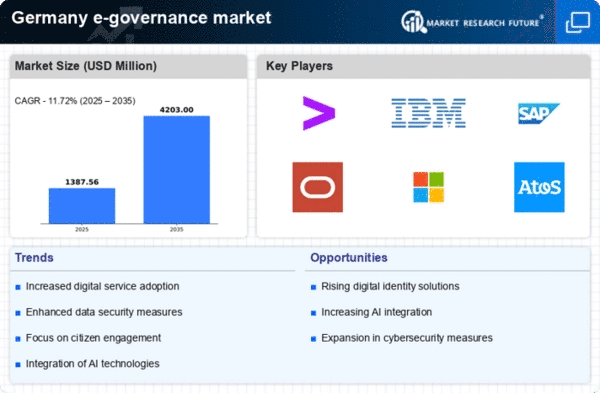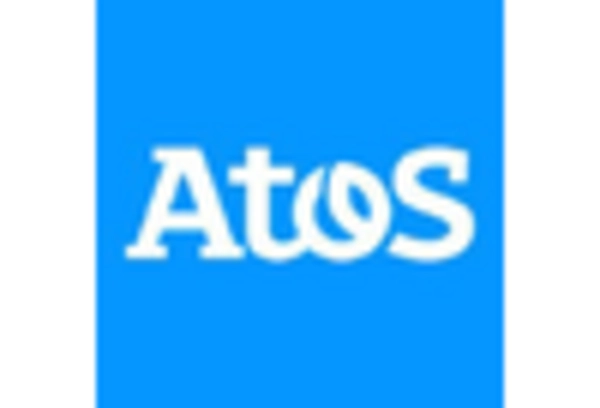Rising Demand for Transparency
The e governance market in Germany is experiencing a notable rise in demand for transparency in government operations. Citizens increasingly expect access to information regarding public spending, decision-making processes, and service delivery. This trend is reflected in the implementation of various digital platforms that facilitate open data initiatives. According to recent statistics, approximately 70% of German citizens express a desire for greater transparency from their government. This demand is driving the e governance market to adopt innovative solutions that enhance accountability and foster trust between citizens and public institutions. As a result, the industry is likely to see a surge in investments aimed at developing user-friendly interfaces and data visualization tools that promote transparency.
Growing Focus on User Experience
A growing focus on user experience is reshaping the e governance market in Germany. As citizens increasingly engage with digital services, the expectation for intuitive and user-friendly interfaces has become paramount. Government agencies are recognizing the importance of designing services that cater to the needs and preferences of users. This shift is prompting investments in user experience research and design, with an emphasis on accessibility and inclusivity. Recent surveys indicate that over 60% of users find existing government websites difficult to navigate, highlighting the need for improvement. Consequently, the e governance market is likely to evolve as agencies prioritize user-centric design principles, ultimately enhancing citizen satisfaction and engagement.
Integration of Advanced Technologies
The integration of advanced technologies such as artificial intelligence (AI) and blockchain is significantly influencing the e governance market in Germany. These technologies offer the potential to streamline processes, enhance security, and improve service delivery. For instance, AI can be utilized to analyze citizen feedback and optimize public services accordingly. Furthermore, blockchain technology can ensure secure and tamper-proof records of transactions and interactions between citizens and government entities. The German government has allocated approximately €200 million towards research and development in these areas, indicating a strong commitment to leveraging technology for improved governance. This integration is expected to reshape the e governance market, making it more efficient and responsive to citizen needs.
Increased Collaboration Between Sectors
Increased collaboration between public and private sectors is emerging as a vital driver of the e governance market in Germany. Partnerships between government agencies and technology firms are fostering innovation and accelerating the development of digital solutions. These collaborations enable the sharing of expertise, resources, and best practices, which can lead to more effective e governance implementations. For instance, joint initiatives have been launched to develop secure digital identity systems and improve data interoperability across various government platforms. This collaborative approach not only enhances the efficiency of public services but also encourages the private sector to invest in the e governance market, potentially leading to a more dynamic and responsive governance landscape.
Legislative Support for Digital Initiatives
Legislative support for digital initiatives is a crucial driver of the e governance market in Germany. The government has enacted various laws and regulations aimed at promoting digitalization within public administration. For example, the Online Access Act mandates that all administrative services be made available online by 2022, which has significantly accelerated the digital transformation of public services. This legal framework not only facilitates the adoption of e governance solutions but also encourages public institutions to innovate and improve their service offerings. As a result, the e governance market is likely to witness increased participation from private sector players looking to collaborate with government agencies to develop and implement digital solutions.
















